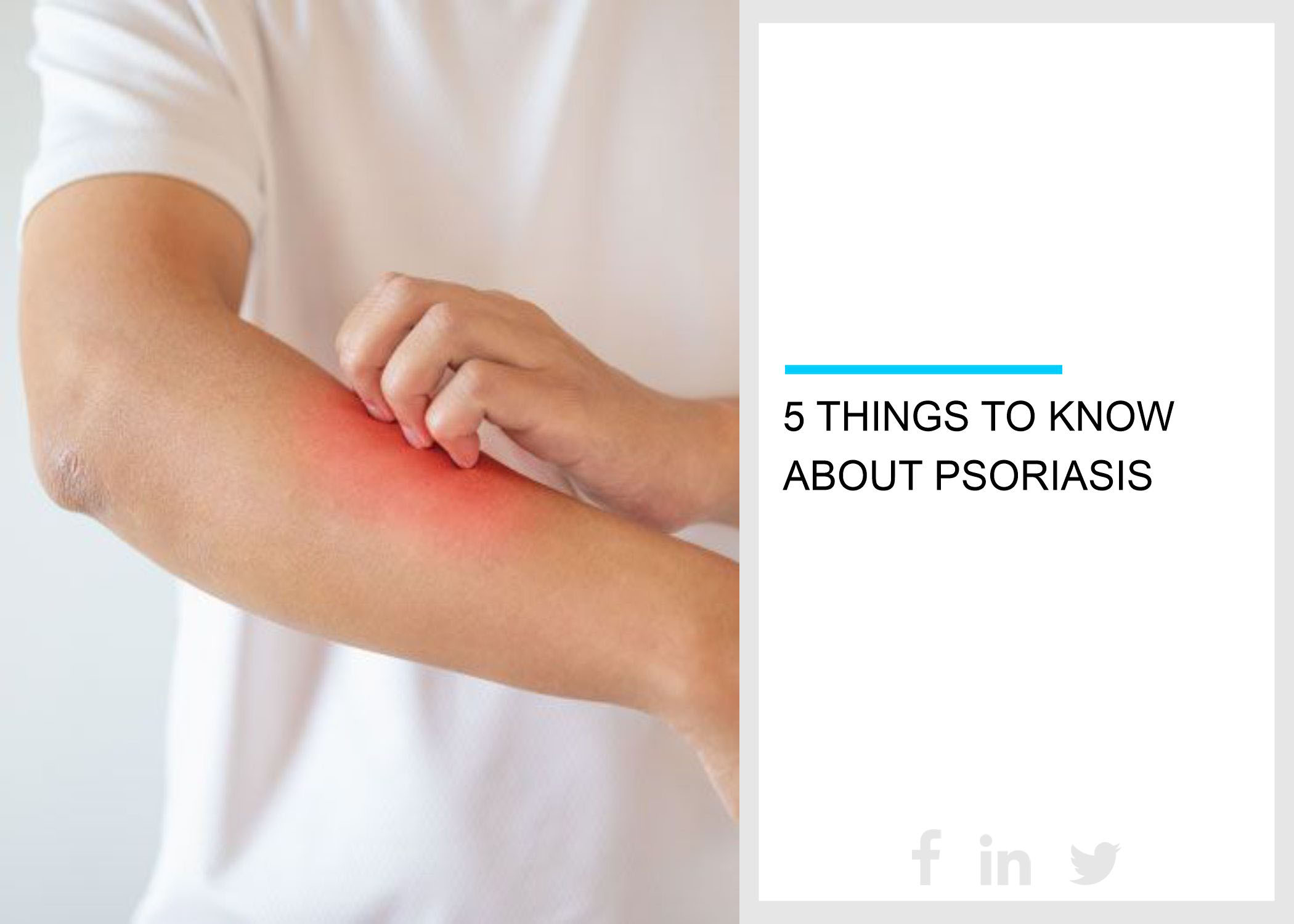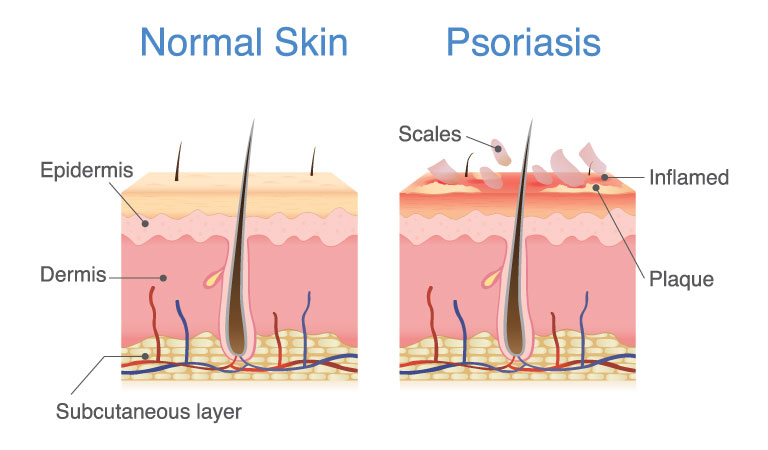


Different systems of our body work together in harmony to allow us to carry out our day-to-day activities with ease. However, when this harmony is disrupted because of any internal factors, it can lead to visible effects on our bodies. Psoriasis is one such skin condition which is the result of a faulty immune response. According to the World Health Organization, as many as 100 million individuals suffer from psoriasis globally.
Psoriasis is a chronic skin condition that causes the cells in the skin to multiply at a faster rate than normal. Generally, skin cells regenerate every 10 to 30 days. With psoriasis skin disease, new skin cells grow every 3 to 4 days. This results in a build-up of cells on the surface of the skin, giving an appearance of scaly skin. The exact cause of psoriasis is currently not known. However, it is known to be caused due to a mistaken immune system response that causes inflammation. This triggers the skin cells to regenerate at a faster rate than normal.

Psoriasis generally appears in early adulthood. For many people, the condition affects only some areas of the body. In severe psoriasis, the condition can cover large areas of the body. The patches may heal but they can recur throughout a person’s lifetime.
So what does psoriasis look like? Let’s take a look at the different psoriasis symptoms.
The symptoms and signs of psoriasis differ from person to person. Some of the common symptoms are as follows:
Based on the different psoriasis types, psoriatic patches appear in various areas of the body. Some of these patches, like those resulting from psoriasis on the face, psoriasis on hands, psoriasis on legs, scalp psoriasis, and so on, can be difficult to hide. Hence, people with psoriasis are often subjected to unkind scrutiny by people around them. This can have a big impact on their self-confidence and self-image. The lack of awareness and myths prevalent in society about psoriasis lead to the social isolation of people suffering from it.
Psoriasis is associated with pain, discomfort, social stigmatization, physical disability and psychological distress. According to the National Psoriasis Foundation, nearly 60% of people with psoriasis reported the disease posed a big problem in their everyday lives. It, therefore, has a significant impact on a person’s quality of life.
There is no known psoriasis cure so far. But, with the right treatment, the symptoms of psoriasis can be effectively managed. It can be challenging to determine the best treatment for an ailment like psoriasis which has multiple effects. It is a chronic condition, with chances of recurrence throughout life. In such a scenario, home remedies for psoriasis may not be very effective in giving long-term relief. For safe and natural psoriasis treatment, unani is an effective medium.
